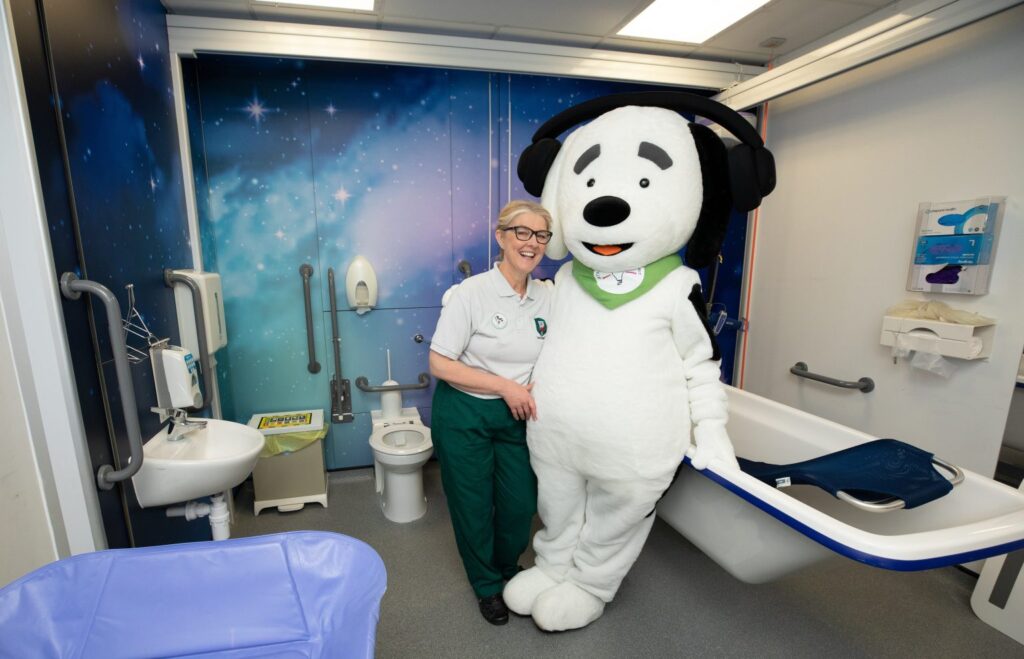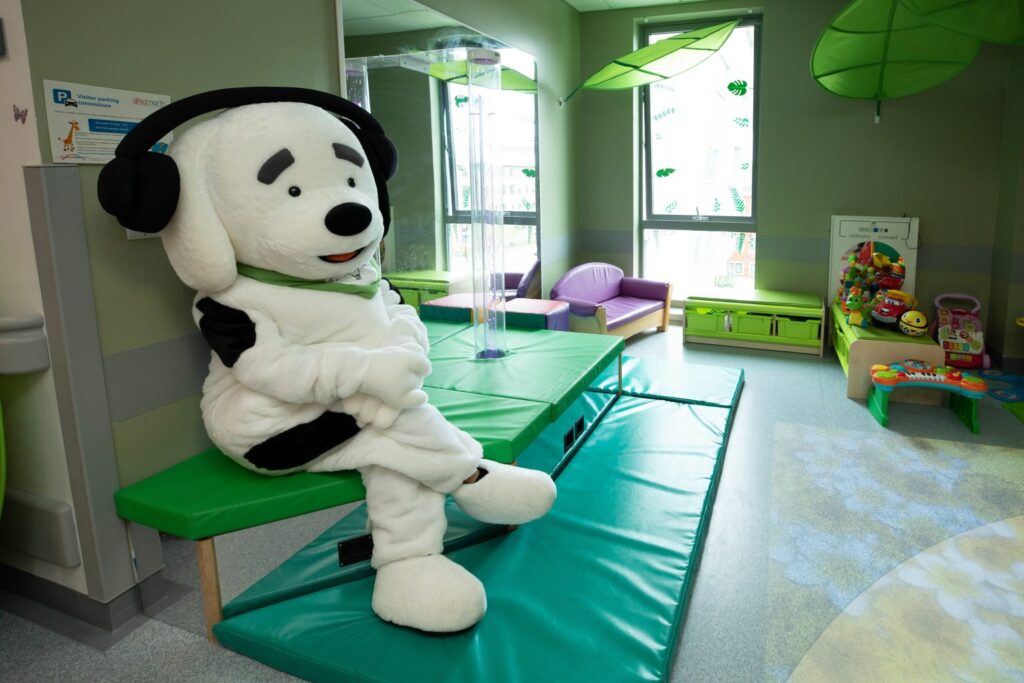Project
Clinical entrepreneur and occupational therapist Alice Gair created ‘Bobby’s Big Day Out’, a children’s short story book following mascot Bobby as he attends The Great North Children’s Hospital (GNCH) for an appointment.
Written by Alice and Philippa Gaunt, the book is a unique resource for neurodivergent children and those who experience sensory processing differences; or who are nervous or worried about coming into our hospitals, their families and carers.
It aims to normalise being in GNCH by preparing the children on what they can expect in hospital so that they feel safe and comfortable. Newcastle United Football Club’s players provided funding to support the publication of the book.
The book is part of the resources created by the Sensational Thinking Project and its author Alice Gair received support form the national NHS Clinical Entrepreneur Programme to develop and grow her project.
 An occupational therapist with Bobby our sensory mascot in one of our revamped bathrooms
An occupational therapist with Bobby our sensory mascot in one of our revamped bathrooms
What this means for staff
The book and wider project are supporting practitioners in the hospitals along with school staff, parents and carers with tailored sensory awareness sessions delivered by trained occupational therapists.
The training raises awareness and understanding of sensory differences and how changes can be made in daily activities to improve the experience of children.
To date supportive resources include:
- Sensational practitioner training sessions giving attendees an introduction into sensory processing and how sensory differences can impact behaviour
- Short videos suggesting tools and sensory equipment
- Bobby’s ‘Top Tips’ posters for a range of settings including calm classrooms
- Sensory boxes
- Bobby’s bite-size introductions to movement breaks
- Bobby’s ‘Big Day Out’ book
How this benefits patients
A seemingly simple task such as coming in for a dentist appointment or to have blood taken can be a huge event for a child and a family with sensory processing differences that other families may take for granted.
Some wards and areas throughout the hospital have been given a calming sensory friendly makeover, and a sensory garden is being developed in one of the large courtyards at the RVI for use by patients.
 Bobby our sensory mascot in one of our children’s wards’ sensory areas
Bobby our sensory mascot in one of our children’s wards’ sensory areas
How our innovation team helped
Our team collaborated with the commercial team and Alison on the project for two years providing specialist commercial guidance to support the development and roll out of the book. This included project management and specific tailored support such as sourcing local printers, financial oversight and legal advice relating to book’s copyright ahead of its publication.
Alice was the first occupational therapist in the country to secure a place on the Clinical Entrepreneur Programme and she became the first clinical entrepreneur with the programme for our trust.
She has received supported in areas including mentoring, networking, broadening her understanding of the wider healthcare system and accessing funding sources. Developing the skills and mindset to overcome the many challenges that come with growing an innovation has also been a focus of ‘leadership in innovation’ personal development sessions.
What would you say to colleagues who have an idea to develop?
Whatever stage you’re at in your career, and however ‘seasoned’ your idea is, it’s about harenessing it and working towards your vision. What I’ve learned from the programme I’ve put into clinical practice so it has enhanced my transferrable skills as well as being an entrepreneur. The learning is flexible so you can access it face to face and remotely. I was matched really well with a mentor who is also a mother, which was fantastic as I’m a mum of two young children. I’ve been able to participate in the programme as well as maintaining a clinical role and being a parent.